Finding Comfort in Surprising Forms
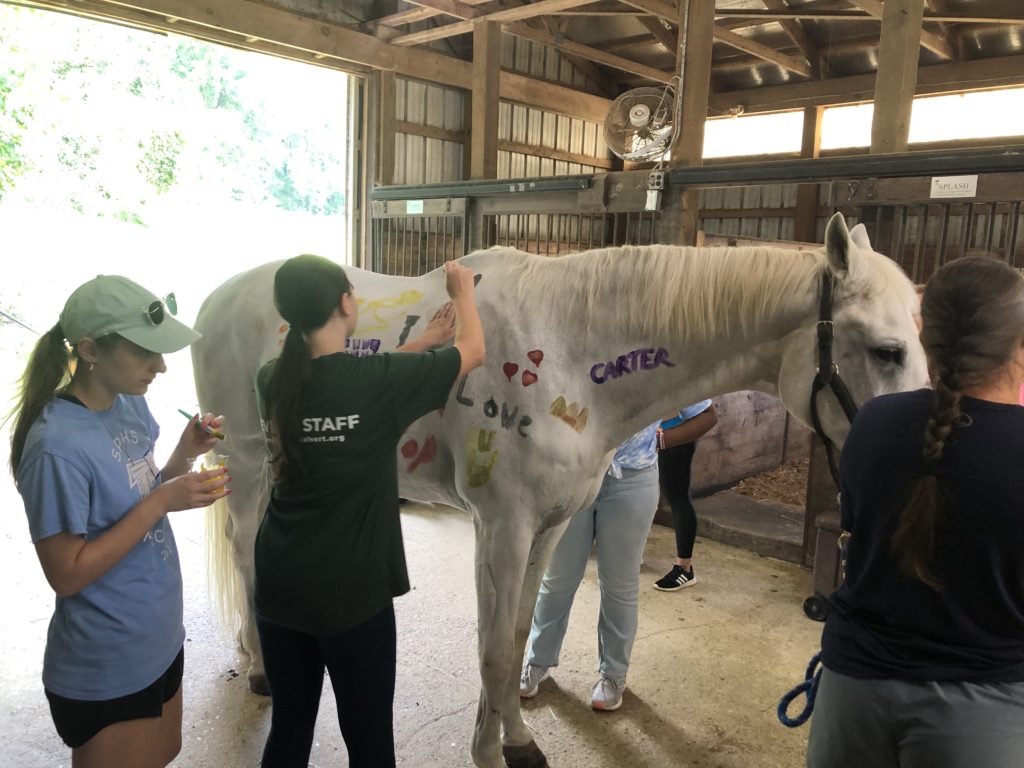
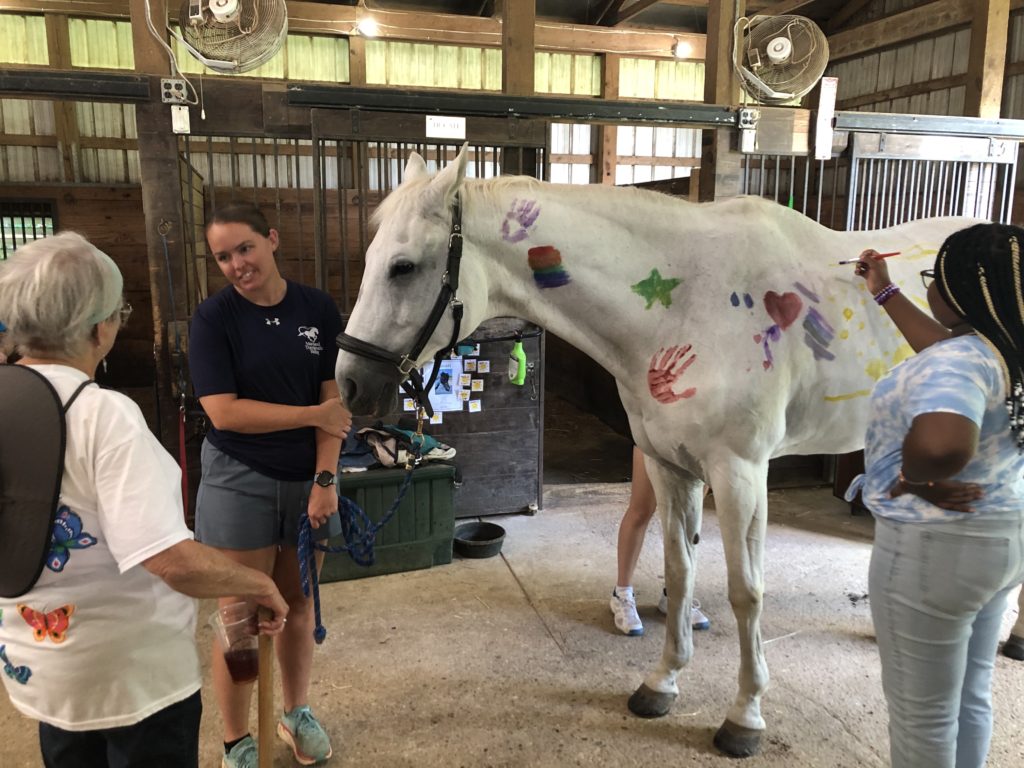
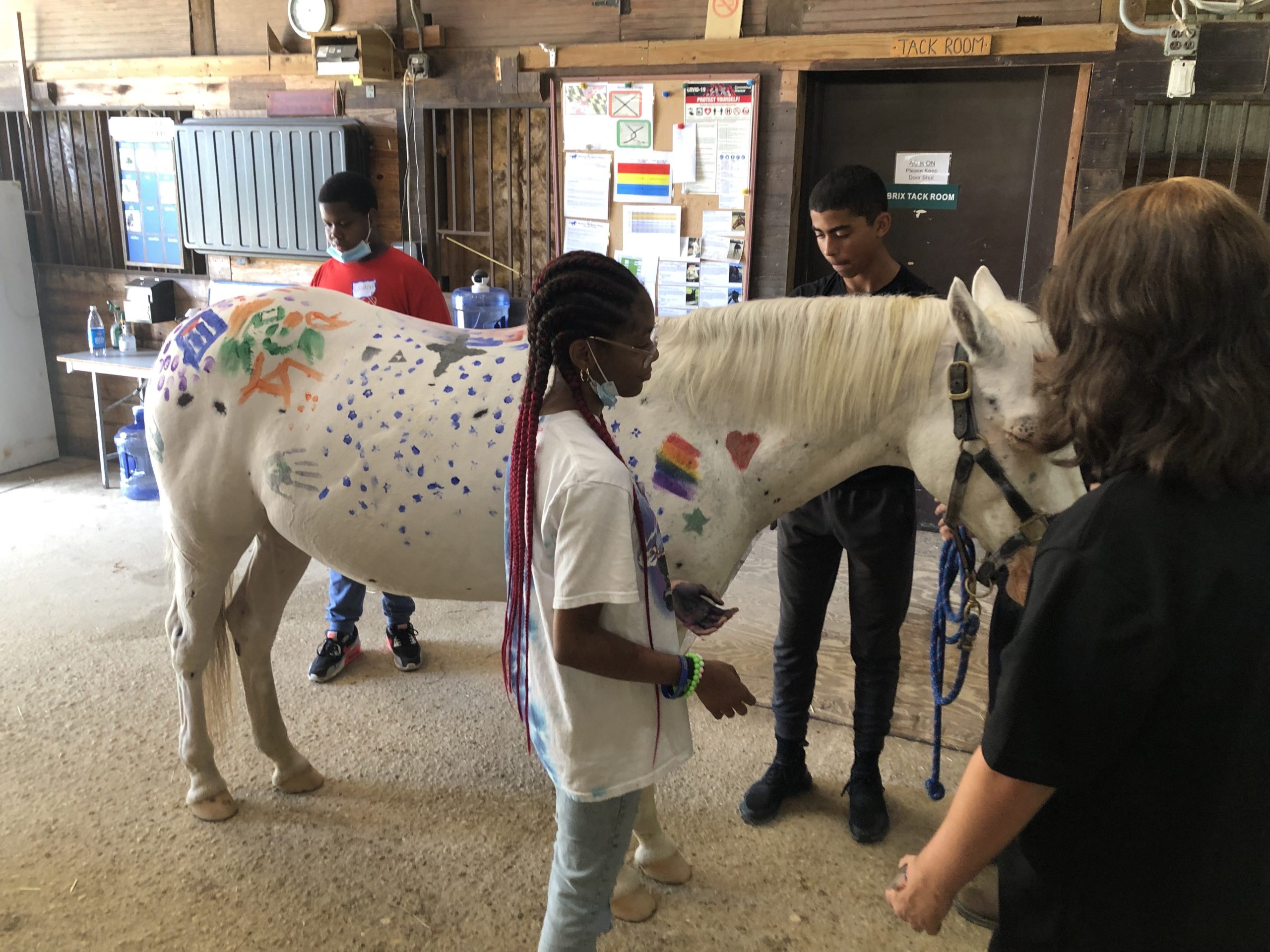
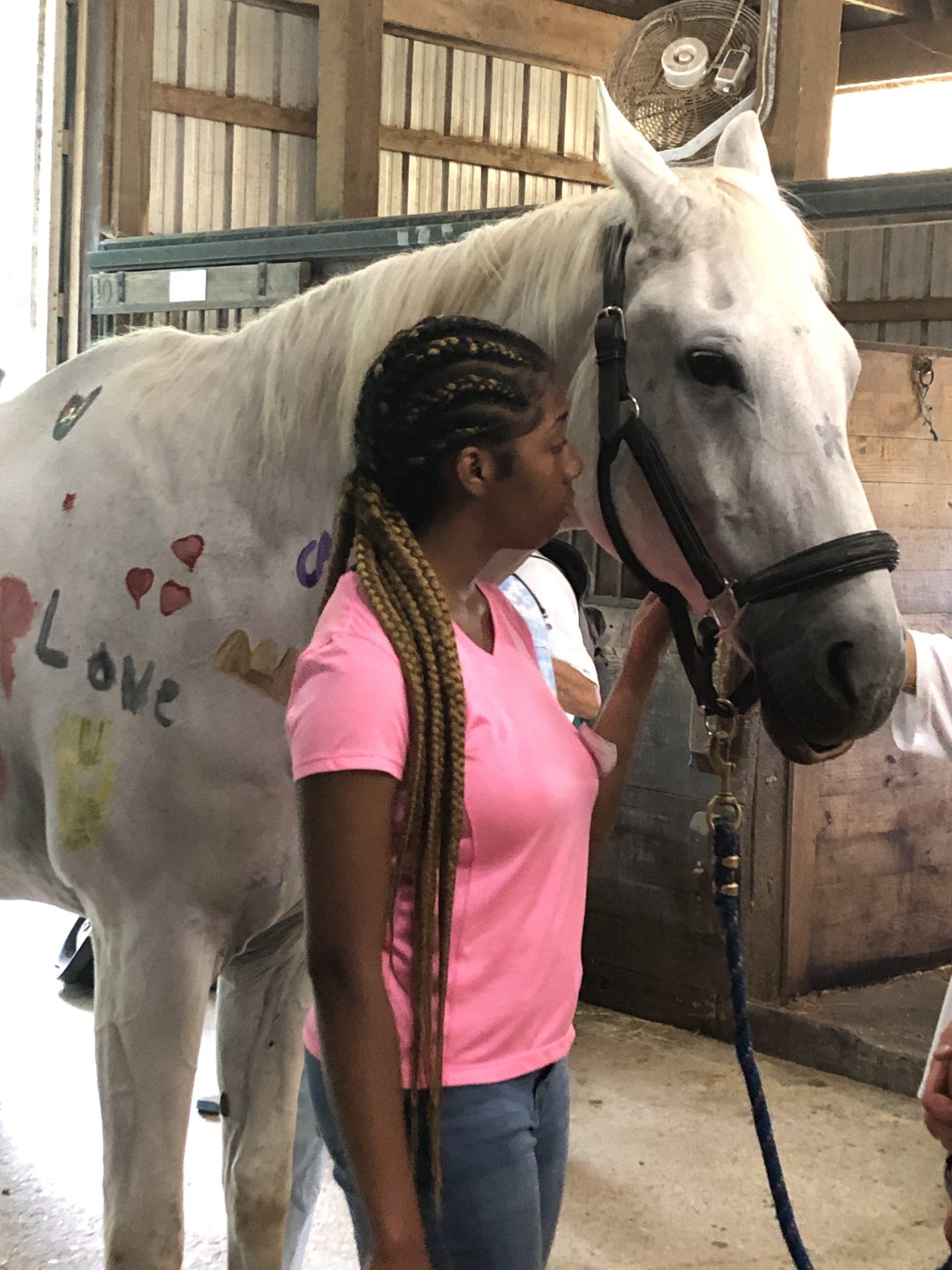
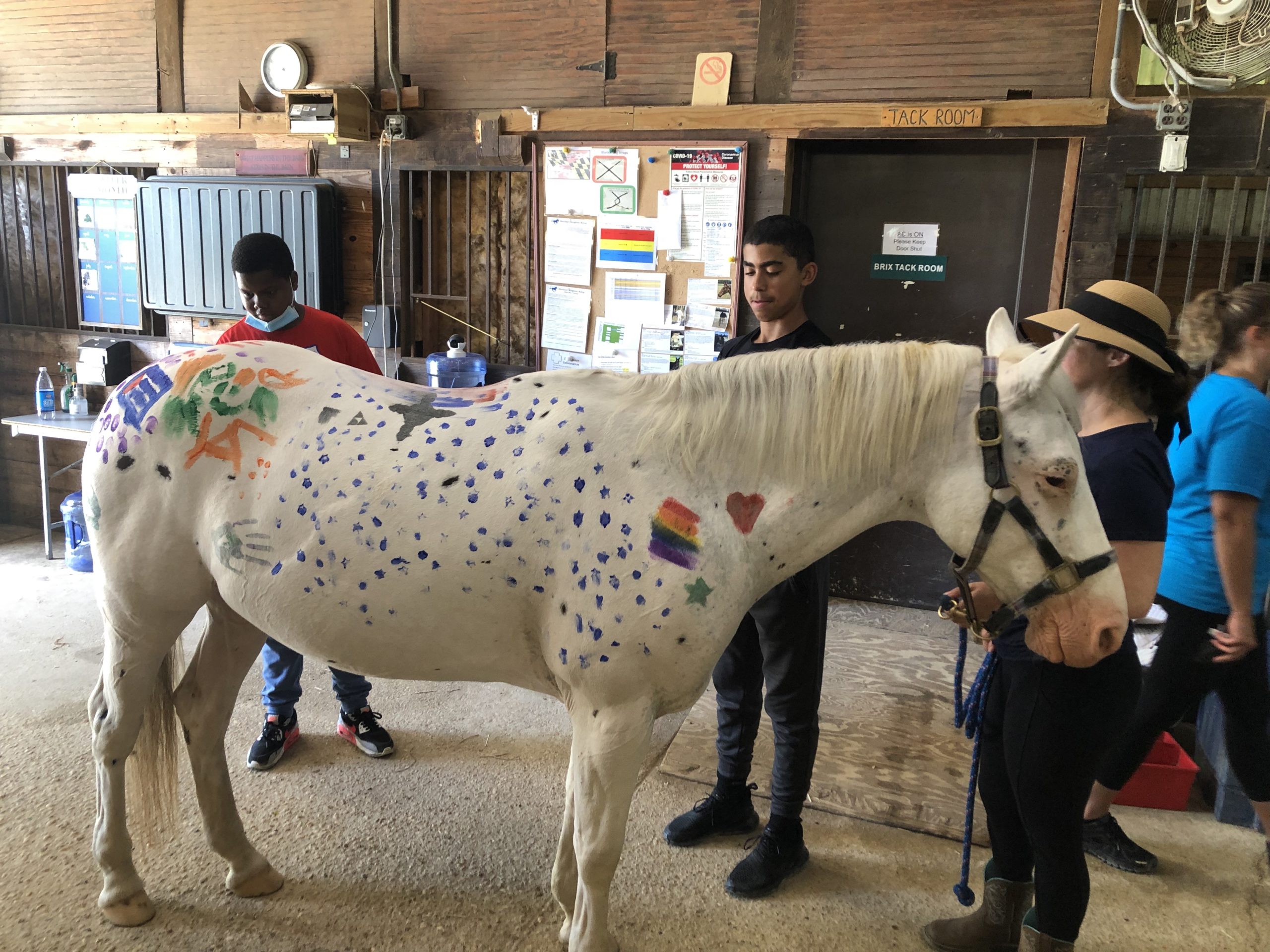
By Susan Nolan
Splash and Carter have important jobs at Maryland Therapeutic Riding (MTR) in Crownsville. But the 25-year-old and 18-year-old aren’t earning a paycheck or working to save for retirement. They are horses in the business of healing human hearts.
Splash and Carter are just two of the animals that reside at the facility located on 25 bucolic acres. More than a riding business, MTR offers a variety of mental health and wellness services. So it makes sense that it would team with counselors from Hospice of the Chesapeake to offer programs to teens dealing with grief.
“Horses are sensitive, intuitive beings,” says Amy Aronstamn, a bereavement counselor with the Hospice of Chesapeake, “They are empathetic and can mirror human emotions.”
A lifelong horsewoman herself, Aronstamn and fellow bereavement counselor Casey Dressel brought nine teenagers together at MTR for a program to assist them in mourning the loss of a loved one.
On Aug. 19, the young people in the Summer Grief Workshop painted flowers, hearts, and flags on the horses’ coats.
“This is an opportunity for them to connect with the horses and with their emotions,” Aronstamn explains.
The designs are symbols that remind the teens of their loved ones. Splash and Carter are patient and attentive as the teens stroke their manes, speak to them softly, and decorate their bodies with water-based paint. As calming as this activity is, it’s not the main event. It is sandwiched between sessions of equine-assisted psychotherapy.
Unlike therapeutic riding, clients engaged in an equine-assisted psychotherapy session do not ride the horses. Instead, clients and their counselors stay on the ground. “Not everyone is comfortable talking with a therapist in an office setting,” explains Katie Streett, clinical director of TenTen Counseling Services at MTR. “We create and facilitate experiences with horses that give us insights as to what is going on with the client.”
With a mental health professional and a certified equine specialist present, the client interacts with the horse. “During these sessions, we don’t refer to the horse as a horse. We don’t call them by their names. Instead, the horse is a metaphor for what the client needs it to be. Horses can be a family member or the embodiment of an emotion,” says Streett.
Equine-assisted psychotherapy can be especially effective for adolescents. “Interacting with an animal is less intimidating than talking with a person and the communication doesn’t need to be verbal,” says Streett.
Hospice of the Chesapeake serves clients of all ages in Anne Arundel, Calvert, Charles, and Prince George’s counties. While many of the clients in the grief workshops are mourning the death of a loved one who died while receiving hospice care, anyone who has lost a loved one is eligible for their workshops, support groups, and programs.
“Every individual is unique in how they experience grief,” says Dressel. “Some people only want or need one session, and we have other clients who stay with us for years.”
One of the benefits of attending Hospice’s bereavement programs is that it allows participants to connect with others who have had similar experiences. “Today’s program helped normalize and validate the grief experience,” Dressel states.
Learn more:
